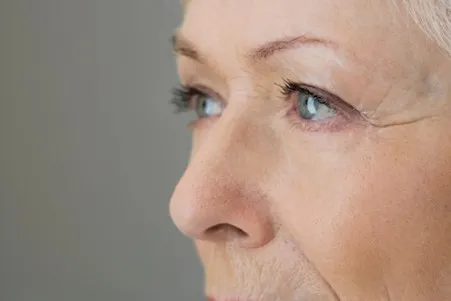Osteoporosis is a condition that weakens bones, making them fragile and more likely to break. For seniors, this is especially important to understand because as people age, their bones naturally lose density.
In this guide, we will explore what osteoporosis is, its causes, how to prevent it, and the treatments available. Read on to learn more.
What is Osteoporosis?
Osteoporosis is a health condition that occurs when the body loses too much bone density or does not make enough bone. When this happens, bones become weak and are at risk of breaking.
Common fractures related to osteoporosis include those in the hip, spine, and wrist. These injuries can lead to severe pain and affect daily life. It’s crucial for everyone, especially seniors, to learn about osteoporosis and how to keep their bones healthy.
Causes of Osteoporosis in Seniors
Several factors contribute to the development of osteoporosis, especially as people age. After menopause, women experience a drop in estrogen levels, which protects bones. This increase in bone loss can lead to osteoporosis.
Aging naturally leads to a decline in bone mass. As seniors grow older, the body’s ability to produce new bone decreases.
A diet low in calcium and vitamin D can weaken bones. These nutrients are essential for bone health, and not getting enough can lead to osteoporosis. Regular exercise helps strengthen bones.
Seniors who lead sedentary lifestyles are more likely to develop this condition. Some medications, especially long-term steroids, can contribute to bone loss.
How to Prevent Osteoporosis
Preventing osteoporosis is possible with some lifestyle changes. Here are several key steps seniors can take to reduce their risk:
- Eat a Bone-Healthy Diet
- Stay Active
- Avoid Smoking and Limit Alcohol
- Regular Checkups
Treatments for Osteoporosis
If osteoporosis has already developed, several treatment options are available to help manage the condition. Doctors can prescribe medications that help strengthen bones. These may include bisphosphonates, hormone therapy, or other medications that promote bone health.
If diet alone does not provide enough calcium or vitamin D, supplements can help fill the gaps. Continuing to exercise, eat a healthy diet, and avoid smoking and excessive alcohol is important for maintaining bone health.
Maintaining Healthy Bones
Maintaining healthy bones is crucial for everyone, especially seniors with osteoporosis. Here are some tips to keep bones strong.
Drinking enough water is important for overall health, including bones. Good posture can help align your spine and reduce the risk of fractures.
Too much caffeine can reduce calcium absorption, so keeping it in moderation is wise. Take steps to prevent falls, such as using non-slip mats and wearing shoes with good grip.
Understanding osteoporosis in seniors is essential for maintaining healthy bones and preventing fractures. With the right knowledge, lifestyle changes, and medical treatment, seniors can live with confidence and take action to strengthen their bones.
Living Strong with Osteoporosis
Osteoporosis is a common but serious condition that affects many seniors. By understanding osteoporosis and making lifestyle changes, it is possible to prevent and manage this condition effectively.
Ensuring a well-balanced diet, regular exercise, and consulting with healthcare providers can significantly improve bone health. Everyone should take the steps necessary to protect their bones as they age.
For more helpful tips, check out the rest of our site today.




